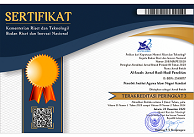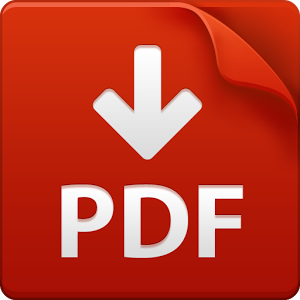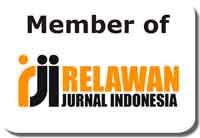The Extent of Religious and Spiritual Determination in Resilience and Coping Ability Among University Students Amidst Pandemic
Abstract
Keywords
Full Text:
PDFReferences
Arora, Ridhi, and Santosh Rangnekar. “Moderating Mentoring Relationships and Career Resilience: Role of Conscientiousness Personality Disposition.” Journal of Workplace Behavioral Health 31, no. 1 (2016): 19–36.
Ayala, Juan Carlos, and Guadalupe Manzano. “Academic Performance of First-Year University Students: The Influence of Resilience and Engagement.” Higher Education Research & Development 37, no. 7 (2018): 1321–1335.
Baker, Amanda R. “Implications of Financial Concerns for College Goal Commitment among Undergraduate Students in the United States.” Social Psychology of Education 22, no. 1 (2019): 63–89.
Boden, Joseph M, Jackie Sanders, Robyn Munford, and Linda Liebenberg. “The Same But Different? Applicability of a General Resilience Model to Understand a Population of Vulnerable Youth.” Child Indicators Research 11, no. 1 (2018): 79–96.
Boyraz, Güler, Yixun Zhu, and J Brandon Waits. “Avoidance Coping and Academic Locus of Control as Mediators of the Relationship between Posttraumatic Stress and Academic Achievement among First-Year College Students.” Anxiety, Stress, & Coping 32, no. 5 (2019): 545–558.
Brewer, Margo, Gisela van Kessel, Brooke Sanderson, and Alice Carter. “Enhancing Student Resilience by Targeting Staff Resilience, Attitudes and Practices.” Higher Education Research & Development 0, no. 0 (2021): 1–15.
Chen, Chen. “The Role of Resilience and Coping Styles in Subjective Well-Being Among Chinese University Students.” The Asia-Pacific Education Researcher 25, no. 3 (2016): 377–387.
Click, Kevin A, Leesa V Huang, and Linda Kline. “Harnessing Inner Strengths of At-Risk University Students: Relationships between Well-Being, Academic Achievement and Academic Attainment.” Perspectives: Policy and Practice in Higher Education 21, no. 2–3 (2017): 88–100.
Connor, Kathryn M, and Jonathan R T Davidson. “Development of a New Resilience Scale: The Connor-Davidson Resilience Scale (CD-RISC).” Depression and Anxiety 18, no. 2 (2003): 76–82.
Fang, Ling, Chin-Chung Chao, and Louisa Ha. “College Students’ Positive Strategic SNS Involvement and Stress Coping in the United States and China.” Journal of Intercultural Communication Research 46, no. 6 (2017): 518–536.
Fried, Rebecca R, Shazya Karmali, and Jennifer D Irwin. “Minding Many Minds: An Assessment of Mental Health and Resilience among Undergraduate and Graduate Students; a Mixed Methods Exploratory Study.” Journal of American College Health 0, no. 0 (2020): 1–13.
Holdsworth, Sarah, Michelle Turner, and Christina M Scott-Young. “… Not Drowning, Waving. Resilience and University: A Student Perspective.” Studies in Higher Education 43, no. 11 (2018): 1837–1853.
Julian, Melissa, Alyssa C D Cheadle, Kendra S Knudsen, Robert M Bilder, and Christine Dunkel Schetter. “Resilience Resources Scale: A Brief Resilience Measure Validated with Undergraduate Students.” Journal of American College Health 0, no. 0 (2020): 1–10.
Konaszewski, Karol, Małgorzata Niesiobędzka, and Janusz Surzykiewicz. “Resilience and Mental Health among Juveniles: Role of Strategies for Coping with Stress.” Health and Quality of Life Outcomes 19, no. 1 (2021): 58.
Kunicki, Zachary J, and Lisa L Harlow. “Towards a Higher-Order Model of Resilience.” Social Indicators Research 151, no. 1 (2020): 329–344.
Lereya, Suzet Tanya, Neil Humphrey, Praveetha Patalay, Miranda Wolpert, Jan R Böhnke, Amy Macdougall, and Jessica Deighton. “The Student Resilience Survey: Psychometric Validation and Associations with Mental Health.” Child and Adolescent Psychiatry and Mental Health 10, no. 1 (2016): 44.
Lin, Yung Kai, Chia-Der Lin, Blossom Yen-Ju Lin, and Der-Yuan Chen. “Medical Students’ Resilience: A Protective Role on Stress and Quality of Life in Clerkship.” BMC Medical Education 19, no. 1 (2019): 473.
Maurović, Ivana, Linda Liebenberg, and Martina Ferić. “A Review of Family Resilience: Understanding the Concept and Operationalization Challenges to Inform Research and Practice.” Child Care in Practice 26, no. 4 (2020): 337–357.
Negi, Ajit Singh, Ashu Khanna, and Rajat Aggarwal. “Psychological Health, Stressors and Coping Mechanism of Engineering Students.” International Journal of Adolescence and Youth 24, no. 4 (2019): 511–520.
Nicklin, Jessica M, Emily J Meachon, and Laurel A McNall. “Balancing Work, School, and Personal Life among Graduate Students: A Positive Psychology Approach.” Applied Research in Quality of Life 14, no. 5 (2019): 1265–1286.
Park, Se-Hyuk, and Youngshim Kim. “Ways of Coping with Excessive Academic Stress among Korean Adolescents during Leisure Time.” International Journal of Qualitative Studies on Health and Well-being 13, no. 1 (2018): 1505397.
Portillo-Reyes, Verónica, John W Capps, Yolanda Loya-Mèndez, Gilberto Reyes-Leal, and Juan Quiñones-Soto. “Daily Stress and Coping Strategies: Relationships with Anxiety and Resilience in Preadolescents from Ciudad Juarez, Mexico.” Current Psychology (2020).
Prevatt, Frances, Huijun Li, Theresa Welles, Desaree Festa-Dreher, Sherry Yelland, and Jiyoon Lee. “The Academic Success Inventory for College Students: Scale Development and Practical Implications for Use with Students.” Journal of College Admission 211 (2011): 26–31.
Russo, Theresa J, and Moira A Fallon. “Coping with Stress: Supporting the Needs of Military Families and Their Children.” Early Childhood Education Journal 43, no. 5 (2015): 407–416.
Sakız, Halis, and Raiha Aftab. “Academic Achievement and Its Relationships with Psychological Resilience and Socio-Demographic Characteristics.” International Journal of School & Educational Psychology 7, no. 4 (2019): 263–273.
Smith, B W, Emerson M Epstein, J A Ortiz, P Christopher, and E Tooley. “The Foundations of Resilience: What Are the Critical Resources for Bouncing Back from Stress?,” 2013.
Verbena, Serena, Alessia Rochira, and Terri Mannarini. “Community Resilience and the Acculturation Expectations of the Receiving Community.” Journal of Community Psychology 49, no. 2 (2021): 390–405.
DOI: http://dx.doi.org/10.31332/ai.v0i0.4598
Copyright (c) 2022 Nur Alim

This work is licensed under a Creative Commons Attribution-NonCommercial-ShareAlike 4.0 International License.










